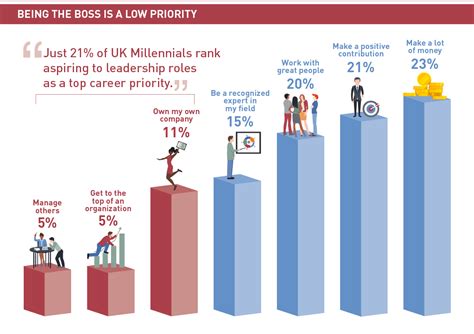
Starting with the Summary/Lead:
Alibaba co-founder Jack Ma advises young professionals to prioritize finding a “good boss” early in their careers to learn essential skills, before considering entrepreneurship later in life, emphasizing the invaluable experience gained from strong leadership.
Jack Ma’s Career Advice: Find a Great Boss Young, Be Your Own Boss Later
Jack Ma, the co-founder of Alibaba, has offered career advice to young people, suggesting they focus on finding a “good boss” in their initial career stages rather than immediately pursuing their entrepreneurial dreams. Ma believes that learning from effective leadership is crucial for developing the necessary skills and experience before venturing out on one’s own. This advice contrasts with the common narrative of immediate entrepreneurship often glorified in today’s business environment.
Ma’s perspective underscores the importance of mentorship and structured learning within established organizations. He posits that a supportive and knowledgeable boss can provide invaluable guidance, accelerating a young professional’s growth and preparing them for the challenges of running their own business.
“Before 30 years old, it doesn’t matter which company you go to, it matters which boss you follow,” Ma stated. “A good boss teaches you differently.” This statement highlights Ma’s belief that the quality of leadership significantly impacts a young employee’s development trajectory. He suggests that the specific industry or company is less critical than the opportunity to learn from an experienced and effective leader.
Ma’s advice comes at a time when entrepreneurship is often presented as the ultimate career goal. Many young people are encouraged to start their own businesses immediately after graduation, driven by the promise of independence and financial success. However, Ma argues that this approach can be premature without a solid foundation of skills and experience.
He emphasizes that working under a “good boss” allows young professionals to observe and learn effective management techniques, build a professional network, and gain practical insights into the workings of a business. This experience can be invaluable when they eventually decide to start their own ventures.
The former Alibaba CEO further suggests that aspiring entrepreneurs should focus on acquiring a comprehensive understanding of business operations, including marketing, finance, and human resources. This knowledge is best gained through practical experience under the guidance of an experienced leader.
Ma’s comments reflect a broader discussion about the role of formal employment in preparing individuals for entrepreneurship. While some argue that formal employment can stifle creativity and innovation, others believe it provides a necessary foundation for success. Ma’s perspective aligns with the latter view, emphasizing the importance of learning from established organizations and experienced leaders.
The Importance of a ‘Good Boss’
Ma’s emphasis on finding a “good boss” raises the question of what qualities define such a leader. According to management experts, a good boss typically possesses several key characteristics, including:
- Clear Communication: A good boss effectively communicates expectations, provides constructive feedback, and keeps employees informed about company goals and progress.
- Mentorship and Development: They actively support employee growth by providing opportunities for training, mentorship, and skill development.
- Empowerment: They empower employees to take ownership of their work, make decisions, and contribute to the overall success of the team.
- Fairness and Respect: They treat all employees fairly and with respect, fostering a positive and inclusive work environment.
- Integrity: They uphold ethical standards and act with integrity in all their dealings.
- Vision: They have a clear vision for the future and inspire their team to work towards achieving it.
Finding a boss who embodies these qualities can significantly impact a young professional’s career trajectory. Such leaders not only provide valuable guidance but also create a supportive environment where employees can learn, grow, and develop their full potential.
The Value of Early Career Experience
Ma’s advice highlights the value of early career experience in building a strong foundation for future success. While entrepreneurship can be appealing, it requires a diverse set of skills and knowledge that are often best acquired through practical experience.
Working in an established organization allows young professionals to:
- Develop Technical Skills: Gain hands-on experience in their chosen field, mastering the technical skills required to perform their job effectively.
- Learn Business Operations: Gain insight into the inner workings of a business, including marketing, finance, operations, and human resources.
- Build Professional Networks: Develop relationships with colleagues, mentors, and industry professionals who can provide guidance and support throughout their career.
- Understand Organizational Culture: Learn how to navigate organizational structures, communicate effectively, and work collaboratively with others.
- Gain Exposure to Different Industries: Explore different industries and roles to identify their passions and interests.
- Learn from Mistakes: Make mistakes in a relatively safe environment, learning from those experiences and developing resilience.
This early career experience can be invaluable when the time comes to start their own business. Aspiring entrepreneurs who have a solid understanding of business operations, a strong professional network, and a proven track record of success are more likely to succeed than those who lack these foundational elements.
Entrepreneurship Later in Life
Ma’s advice does not discourage entrepreneurship; rather, it suggests a strategic approach to it. He advocates for delaying the pursuit of entrepreneurship until a solid foundation of skills and experience has been established. This approach increases the likelihood of success and reduces the risk of failure.
Entrepreneurship later in life can offer several advantages:
- Greater Financial Stability: Individuals who have worked for several years have typically accumulated savings and assets that can be used to fund their ventures.
- Extensive Professional Network: They have developed a broad network of contacts that can provide support, advice, and potential investment opportunities.
- Deep Industry Knowledge: They have gained a deep understanding of their industry, including its challenges and opportunities.
- Proven Track Record: They have a proven track record of success, which can increase their credibility and attract investors and customers.
- Greater Confidence: They have developed greater confidence in their abilities and are better equipped to handle the challenges of running a business.
- Refined Business Idea: They are more likely to have a well-developed and viable business idea based on their years of experience and observations.
By delaying entrepreneurship until later in life, individuals can leverage their experience, resources, and networks to increase their chances of success.
The Broader Context: Changing Career Paths
Ma’s advice also reflects a broader trend of changing career paths. In today’s rapidly evolving job market, it is increasingly common for individuals to switch careers multiple times throughout their working lives. This trend is driven by factors such as technological advancements, globalization, and changing economic conditions.
As a result, young professionals need to be adaptable, resilient, and willing to learn new skills throughout their careers. Ma’s advice to focus on finding a “good boss” early in their careers can help them develop these essential qualities.
A strong foundation of skills and experience can make it easier to navigate career transitions and adapt to new challenges. It can also provide a sense of purpose and direction, helping individuals make informed decisions about their career paths.
Contrasting Views on Entrepreneurship
While Ma emphasizes the importance of learning under a good boss before venturing into entrepreneurship, alternative perspectives exist. Some argue that formal employment can stifle creativity and innovation, hindering the development of entrepreneurial skills. They advocate for early entrepreneurship, believing that the best way to learn is by doing.
Proponents of early entrepreneurship argue that:
- It Fosters Innovation: Starting a business early encourages creativity and innovation, as young entrepreneurs are not constrained by traditional ways of thinking.
- It Develops Resilience: The challenges of running a business can build resilience and adaptability, preparing individuals for future challenges.
- It Creates Opportunities: Early entrepreneurship can create opportunities for personal and professional growth that may not be available in traditional employment.
- It Drives Economic Growth: Young entrepreneurs can contribute to economic growth by creating new businesses and jobs.
- It Allows for Faster Learning: Direct experience in the marketplace provides quicker and more relevant learning than structured employment.
These contrasting views highlight the complexity of career planning and the importance of considering individual circumstances and goals. While Ma’s advice may be suitable for some, others may benefit from pursuing entrepreneurship early in their careers.
Alibaba’s Culture and Leadership
It is important to consider Ma’s advice within the context of Alibaba’s own culture and leadership philosophy. Alibaba has a strong emphasis on mentorship, training, and employee development. The company invests heavily in its employees, providing them with opportunities to learn and grow throughout their careers.
Ma himself is known for his strong leadership skills and his ability to inspire and motivate his employees. He has created a culture of innovation and collaboration within Alibaba, which has contributed to the company’s success.
Therefore, his advice to find a “good boss” may be influenced by his own experiences and the values that he has instilled within Alibaba. He may believe that working under a strong leader is the best way to develop the skills and qualities necessary to succeed in business.
Beyond the Boss: Self-Development and Lifelong Learning
While Ma emphasizes the importance of a good boss, he also implicitly acknowledges the importance of self-development and lifelong learning. Even with a great boss, individuals must take responsibility for their own growth and development.
This includes:
- Seeking Out New Knowledge: Continuously learning new skills and staying up-to-date on industry trends.
- Developing Soft Skills: Honing communication, problem-solving, and leadership skills.
- Building a Strong Network: Cultivating relationships with colleagues, mentors, and industry professionals.
- Seeking Feedback: Actively soliciting feedback from others and using it to improve performance.
- Embracing Challenges: Stepping outside of one’s comfort zone and taking on new challenges.
- Maintaining a Positive Attitude: Approaching work with enthusiasm and optimism.
By actively pursuing self-development and embracing lifelong learning, individuals can enhance their skills and knowledge, making them more valuable employees and more successful entrepreneurs.
Conclusion: A Balanced Approach to Career Planning
Jack Ma’s career advice offers a valuable perspective on career planning, particularly for young professionals. While the allure of immediate entrepreneurship is strong, Ma underscores the importance of building a solid foundation of skills and experience under the guidance of a “good boss.” This approach provides a structured learning environment, allowing individuals to develop essential business acumen and professional networks before venturing out on their own.
However, it’s crucial to acknowledge the contrasting views on early entrepreneurship and the importance of individual circumstances and goals. A balanced approach to career planning involves considering both the benefits of formal employment and the potential opportunities of early entrepreneurship.
Ultimately, the best path for any individual depends on their unique skills, interests, and aspirations. Whether one chooses to work under a good boss or start their own business early, the key is to remain adaptable, resilient, and committed to lifelong learning. By embracing these principles, young professionals can navigate the complexities of the modern job market and achieve their career goals. Ma’s advice serves as a reminder that success is often the result of careful planning, strategic decision-making, and a willingness to learn from others. It encourages young people to prioritize long-term growth and development over immediate gratification, laying the groundwork for a fulfilling and successful career, whether as an employee or an entrepreneur. The emphasis is not on if you become your own boss, but when you are adequately prepared to do so effectively. This approach ensures a more calculated and informed transition into entrepreneurship, mitigating risks and enhancing the potential for sustainable success.
Frequently Asked Questions (FAQ)
-
What exactly does Jack Ma mean by a “good boss,” and what qualities should I look for in one?
A “good boss,” according to the context of Ma’s advice and management experts, is one who provides clear communication, mentorship, and opportunities for development. They should empower employees, treat them with fairness and respect, act with integrity, and possess a clear vision. Look for leaders who actively support your growth, provide constructive feedback, and foster a positive and inclusive work environment. They should also be willing to share their knowledge and experience, guiding you in your professional development.
-
Is Jack Ma saying that everyone should avoid entrepreneurship until they are over 30?
No, Jack Ma is not issuing a blanket statement against early entrepreneurship. His advice is more nuanced, suggesting that young professionals should prioritize learning and skill development under experienced leaders before pursuing entrepreneurship. The idea is to gain a solid foundation of practical knowledge and experience, which can significantly increase the chances of success when they eventually decide to start their own ventures. It is not a strict age limit but a recommendation to be adequately prepared.
-
How does this advice apply to individuals who have a strong entrepreneurial drive and a clear business idea right out of college?
While Ma’s advice emphasizes the value of learning from a “good boss,” it does not negate the potential for success for those with a strong entrepreneurial drive and a well-defined business idea. However, even in such cases, gaining some practical experience in a related industry or role can be beneficial. This experience can provide valuable insights into market dynamics, operational challenges, and customer behavior, which can help refine their business idea and increase their chances of success. Consider part-time or consulting roles alongside developing the business idea.
-
What if I am in a job with a bad boss? Should I quit immediately, or are there ways to make the situation work?
If you find yourself working for a “bad boss,” it’s essential to assess the situation objectively. Consider whether there are opportunities to learn and grow despite the challenges. If the negative aspects outweigh the potential benefits, it may be time to consider other options. However, before quitting, explore ways to improve the situation, such as communicating your concerns to your boss or seeking mentorship from other leaders within the organization. Document instances of mismanagement if any legal action might be taken. Also, update your resume and quietly begin your job search.
-
How does Jack Ma’s advice align with the current trend of young people starting businesses immediately after graduation?
Jack Ma’s advice stands in contrast to the current trend of immediate entrepreneurship often glorified in popular culture. While the idea of starting a business right after graduation can be appealing, Ma suggests that this approach can be premature without a solid foundation of skills and experience. He argues that learning from established organizations and experienced leaders can provide invaluable preparation for the challenges of running a business. His perspective encourages a more strategic and patient approach to entrepreneurship, emphasizing long-term growth and development over immediate gratification.
-
What are some specific examples of skills that can be best learned under a good boss in a corporate setting?
Working under a good boss in a corporate environment offers the opportunity to acquire and refine various critical skills that are essential for both professional growth and future entrepreneurial endeavors. These include:
-
Strategic Thinking and Planning: Observing how a seasoned leader develops and executes strategic plans can provide invaluable insights into long-term vision and goal setting. You learn how to analyze market trends, identify opportunities, and formulate effective strategies to achieve organizational objectives.
-
Financial Management: Exposure to budgeting, forecasting, and financial analysis under a capable manager can equip you with the skills to manage resources effectively, control costs, and make informed financial decisions.
-
Operational Efficiency: By working alongside a good boss, you can learn how to streamline processes, optimize workflows, and improve overall operational efficiency. This includes understanding supply chain management, logistics, and quality control.
-
Marketing and Sales Strategies: Gaining experience in marketing and sales campaigns under a skilled leader can teach you how to identify target markets, develop compelling marketing messages, and build strong customer relationships.
-
Negotiation and Conflict Resolution: Observing how a good boss navigates complex negotiations and resolves conflicts can enhance your ability to communicate effectively, find common ground, and reach mutually beneficial agreements.
-
Team Leadership and Motivation: Learning how to build and motivate a high-performing team is crucial for any leader. A good boss can demonstrate effective techniques for fostering collaboration, delegating tasks, and recognizing employee contributions.
-
Risk Management: Understanding how to identify, assess, and mitigate risks is essential for making informed decisions and protecting organizational assets. A good boss can provide guidance on risk management strategies and contingency planning.
-
Compliance and Regulatory Knowledge: Gaining exposure to legal and regulatory requirements under a knowledgeable leader can help you ensure that your business operates ethically and in compliance with all applicable laws and regulations.
-
Networking and Relationship Building: Building strong professional networks is essential for accessing resources, gaining support, and expanding your business opportunities. A good boss can introduce you to key contacts and demonstrate effective networking techniques.
-
Adaptability and Resilience: Learning how to navigate change and overcome challenges is crucial for long-term success. A good boss can model resilience and provide guidance on adapting to evolving market conditions and unexpected setbacks.
-
-
Are there any risks associated with following Jack Ma’s advice too rigidly? For example, could waiting too long to start a business lead to missed opportunities?
Yes, there are potential risks associated with rigidly adhering to any single piece of career advice, including Jack Ma’s. Delaying entrepreneurship indefinitely could lead to missed opportunities, particularly in rapidly evolving industries where early movers can gain a significant advantage. It’s also possible that waiting too long could result in a loss of motivation or a fear of taking risks. The ideal approach involves finding a balance between gaining valuable experience and seizing opportunities when they arise. Continuous self-assessment and market awareness are crucial for making informed decisions about when to transition into entrepreneurship.
-
How can I identify a company that prioritizes employee development and offers opportunities to work under a good boss?
Identifying a company that prioritizes employee development and offers opportunities to work under a good boss requires careful research and due diligence. Here are some strategies:
-
Research Company Culture: Look for companies with a reputation for valuing their employees and fostering a positive work environment. Websites like Glassdoor and Indeed provide employee reviews and insights into company culture.
-
Assess Leadership Development Programs: Inquire about the company’s leadership development programs and training opportunities. Companies that invest in their employees’ growth are more likely to have good bosses.
-
Network and Seek Referrals: Reach out to your network and ask for referrals to companies with strong leadership and development opportunities. Personal recommendations can provide valuable insights.
-
Attend Industry Events: Attend industry conferences and networking events to meet professionals and learn about different companies’ cultures and leadership styles.
-
Review Company Values: Look for companies that explicitly state their commitment to employee development and ethical leadership in their mission statements and values.
-
Interview Strategically: During the interview process, ask questions about the company’s leadership philosophy, mentorship programs, and opportunities for growth. Pay attention to the interviewer’s responses and assess whether they align with your values and career goals.
-
Look for Mentorship Programs: Mentorship programs are a strong indicator that a company values employee development and provides opportunities to learn from experienced leaders.
-
Evaluate Employee Retention Rates: High employee retention rates often indicate that a company is a good place to work and that employees are satisfied with their leadership and development opportunities.
-
-
What alternatives are there for gaining entrepreneurial skills and experience if I choose not to work under a traditional boss for an extended period?
If you choose not to work under a traditional boss for an extended period, there are several alternative ways to gain entrepreneurial skills and experience:
-
Freelancing and Consulting: Taking on freelance projects or offering consulting services can provide valuable experience in managing clients, delivering results, and building a professional reputation.
-
Starting a Side Hustle: Launching a small side business while working a part-time job or pursuing other activities can allow you to experiment with entrepreneurship without significant financial risk.
-
Volunteering and Non-Profit Work: Volunteering or working for a non-profit organization can provide opportunities to develop leadership skills, manage projects, and contribute to a cause you care about.
-
Online Courses and Workshops: Enrolling in online courses and workshops on topics such as business planning, marketing, and finance can provide theoretical knowledge and practical skills.
-
Mentorship Programs: Seeking out mentors who have experience in entrepreneurship can provide guidance, support, and valuable insights.
-
Networking and Industry Events: Attending industry events and networking with other entrepreneurs can provide opportunities to learn from their experiences and build relationships.
-
Reading and Research: Reading books, articles, and blogs on entrepreneurship can provide valuable information and inspiration.
-
Joining Entrepreneurial Communities: Participating in online or in-person communities of entrepreneurs can provide support, feedback, and opportunities to collaborate.
-
Incubators and Accelerators: Applying to incubator or accelerator programs can provide mentorship, funding, and resources to help launch and grow your business.
-
Shadowing or Interning with Entrepreneurs: Offering to shadow or intern with successful entrepreneurs can provide firsthand experience in running a business.
-
-
How can I ensure I’m not becoming too comfortable in a traditional job and losing my entrepreneurial spirit if I follow Jack Ma’s advice?
To prevent becoming too comfortable in a traditional job and losing your entrepreneurial spirit while following Jack Ma’s advice, it’s essential to maintain a proactive and intentional approach to your career and personal development:
-
Set Clear Goals: Define your long-term entrepreneurial goals and create a plan for achieving them. This will help you stay focused and motivated.
-
Continue Learning: Continuously learn new skills and stay up-to-date on industry trends. This will keep your mind sharp and prepare you for future opportunities.
-
Seek Out Challenges: Actively seek out challenging projects and assignments that push you outside of your comfort zone. This will help you develop your problem-solving skills and build your confidence.
-
Network and Connect: Maintain connections with other entrepreneurs and industry professionals. This will provide inspiration, support, and potential collaboration opportunities.
-
Start a Side Project: Pursue a side project or hobby that allows you to express your creativity and entrepreneurial spirit. This can help you stay engaged and prevent burnout.
-
Stay Informed: Stay informed about the latest trends and opportunities in your industry. This will help you identify potential business ideas and stay ahead of the curve.
-
Regularly Evaluate Your Progress: Regularly assess your progress towards your entrepreneurial goals and adjust your plan as needed. This will help you stay on track and avoid complacency.
-
Embrace Failure: View failures as learning opportunities and don’t be afraid to take risks. This will help you develop resilience and adaptability, which are essential for entrepreneurial success.
-
Stay Passionate: Maintain a strong sense of passion for your work and your goals. This will help you stay motivated and overcome challenges.
-
Set a Timeline: Give yourself a realistic timeline to make the transition to entrepreneurship. This will provide a sense of urgency and prevent you from procrastinating.
-









